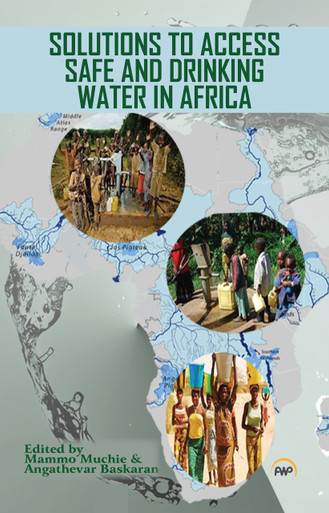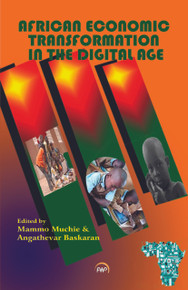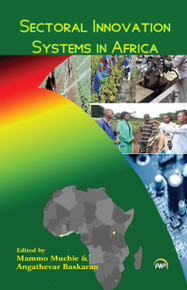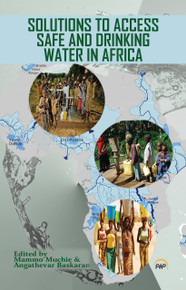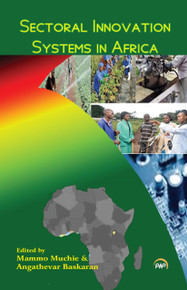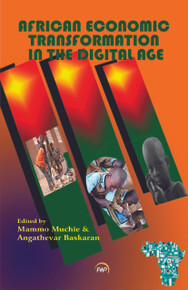Categories
Categories
Authors
Authors
- Home
- Development Studies
- SOLUTIONS TO ACCESS SAFE AND DRINKING WATER, Edited by Mammo Muchie and Angathevar Baskaran (HARDCOVER)
SOLUTIONS TO ACCESS SAFE AND DRINKING WATER, Edited by Mammo Muchie and Angathevar Baskaran (HARDCOVER)
SOLUTIONS TO ACCESS SAFE AND DRINKING WATER, Edited by Mammo Muchie and Angathevar Baskaran (HARDCOVER)
Product Description
The Sustainable Development Goals (SDGs) explicitly state clean water and sanitation as the sixth of the 17 goals to be achieved by 2030. One of the Millennium Development Goals (MDGs) targets of halving by 2015 the proportion or percentage of the population without sustainable access to safe drinking water and basic sanitation has not yet been fulfilled. Clean water on the tap is still a luxury in Africa. Water exists in abundance in Africa but not in ways it can be accessed and used readily by ordinary people. Discovering solutions to the provision of access to clean and safe water in Africa remain still a big challenge. The SDGs have to be implemented fully and efficiently to make sure all people including rural households have access to clean and safe water and sanitation. Water is more critical than electricity and other necessities in life. One can find a way to live without electricity, but life without water is inconceivable. The priority to get water clean and accessible to all at the same time brooks no delay. There is a need to undertake serious research in order to discover new knowledge and insights on how clean water and sanitation can be realised for promoting the wellbeing of all the people in Africa.
The contributions in this book explore the issue of water from various perspectives using a combination of primary and secondary data to generate new and original insights to advance knowledge related on how clean water and sanitation can be accessible to all the people in Africa. The move from MDGs to SDGs will no doubt make a big difference and there is a need to do research on how clean water and sanitation can be made accessible to all the people in Africa. We believe this book makes a critical contribution to the knowledge and understanding of the challenges faced by African countries regarding clean water and sanitation.
“Access to clean and safe drinking water is a major challenge across African countries. In sub-Saharan Africa, over 300 million people are without access to reliable drinking water sources and this is causing water-borne diseases and time loss collecting water which are affecting people’s ability to contribute to the economic development fully, especially the women. This book makes a valuable contribution to understand this challenge and is a welcome addition to research in this area”.
--Professor Banji Oyelaran-Oyeyinka, Director, Monitoring & Research Division (MRD), UN-HABITAT
“A number of countries in Africa still face huge challenges in attempting to achieve the United Nations water-related Millennium Development Goals (MDGs) due to weakness in effectively developing and managing their water resources sustainably. The Sustainable Development Goals (SDGs) makes countries particularly in Africa to continue their focus on access to clean and safe water. This book is an important contribution towards understanding the critical problems faced by African countries and identifying possible policy solutions”.
--Professor Kwesi Prah, Director of CASAS, Cape Town, South Africa
ABOUT THE EDITORS
MAMMO MUCHIE is a DST/NRF Research Professor in Science, Technology and Innovation for Development at Tshwane University of Technology (TUT) in Pretoria, South Africa. He is also NRF rated Research Professor and member of the African Academy of Sciences and the South African Academy of Sciences.
ANGATHEVAR BASKARAN is an Associate Professor at the Department of Development Studies, FEA, University of Malaya, Malaysia & Senior Research Associate, SHARChI (Innovation and Development), Tshwane University of Technology, Pretoria, South Africa.
CATEGORY
Ecology, Political Economy, Innovation & Environment Studies/AFRICA
PUBLICATION YEAR
2017
PAGE COUNT
240 Pages
 Loading... Please wait...
Loading... Please wait... 
